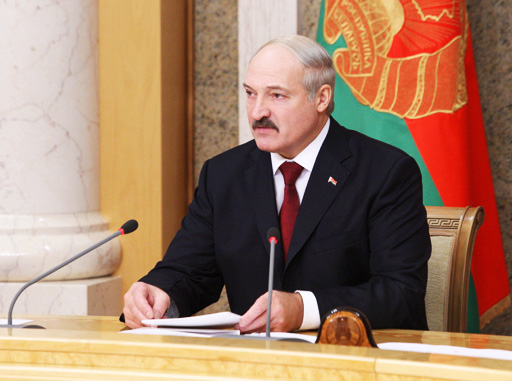
Belarusian President Alexander Lukashenko urged the Commonwealth of Independent States (CIS) to start solving the serious problems of post-Soviet area, including the Nagorno-Karabakh conflict.
The conflict between the two South Caucasus countries began in 1988 when Armenia made territorial claims against Azerbaijan. As a result of the ensuing war, in 1992 Armenian armed forces occupied 20 percent of Azerbaijan, including the Nagorno-Karabakh region and seven surrounding districts.
“It is necessary in the CIS to discuss serious problems of the post-Soviet area,” he said addressing a meeting of the Council of CIS Heads of State, held in narrow format, Belta reported Oct. 16.
Lukashenko added that it is needed to encourage, as far as it is possible, those on whom the solution of those problems depends.
“Otherwise, we will be moving towards the decay of our cooperation,” he stressed.
Belarusian president also noted that the agenda of the meeting of the CIS Heads of State Council is made up of statements and suggestions.
“It makes no sense to blame today Kazakhstan, or Russia, or Belarus in that the CIS is inefficient,” he said.
The heads of CIS countries admit that it is an important platform for negotiations and it shouldn’t be destroyed, according to Lukashenko.
The CIS will have reputation and will be a sought-after organization when it starts to resolve the main, topical issues, said Belarusian president and gave as an example the conflicts in Nagorno-Karabakh, Transnistria and Ukraine.
“We are somehow evading these issues,” said Lukashenko. “As if we are accustomed, we wait that Americans, the European Union and some others will come and tell us how to resolve this problem or will resolve it instead of us.”
New formations have emerged in post-Soviet states and they have an opportunity for more detailed discussions on the existing problems, according to the president.
“Among them are the Eurasian Economic Union and the Union State, which is the most advanced form of integration, the Collective Security Treaty Organization and other organizations,” President Lukashenko said.
“In particular, we have recently focused on the bilateral relations. In fact, we gave them a priority. That is, a lot of obvious trends appeared in the post-Soviet area. These trends enable us to immediately adapt the CIS to the current realities."
Trend
